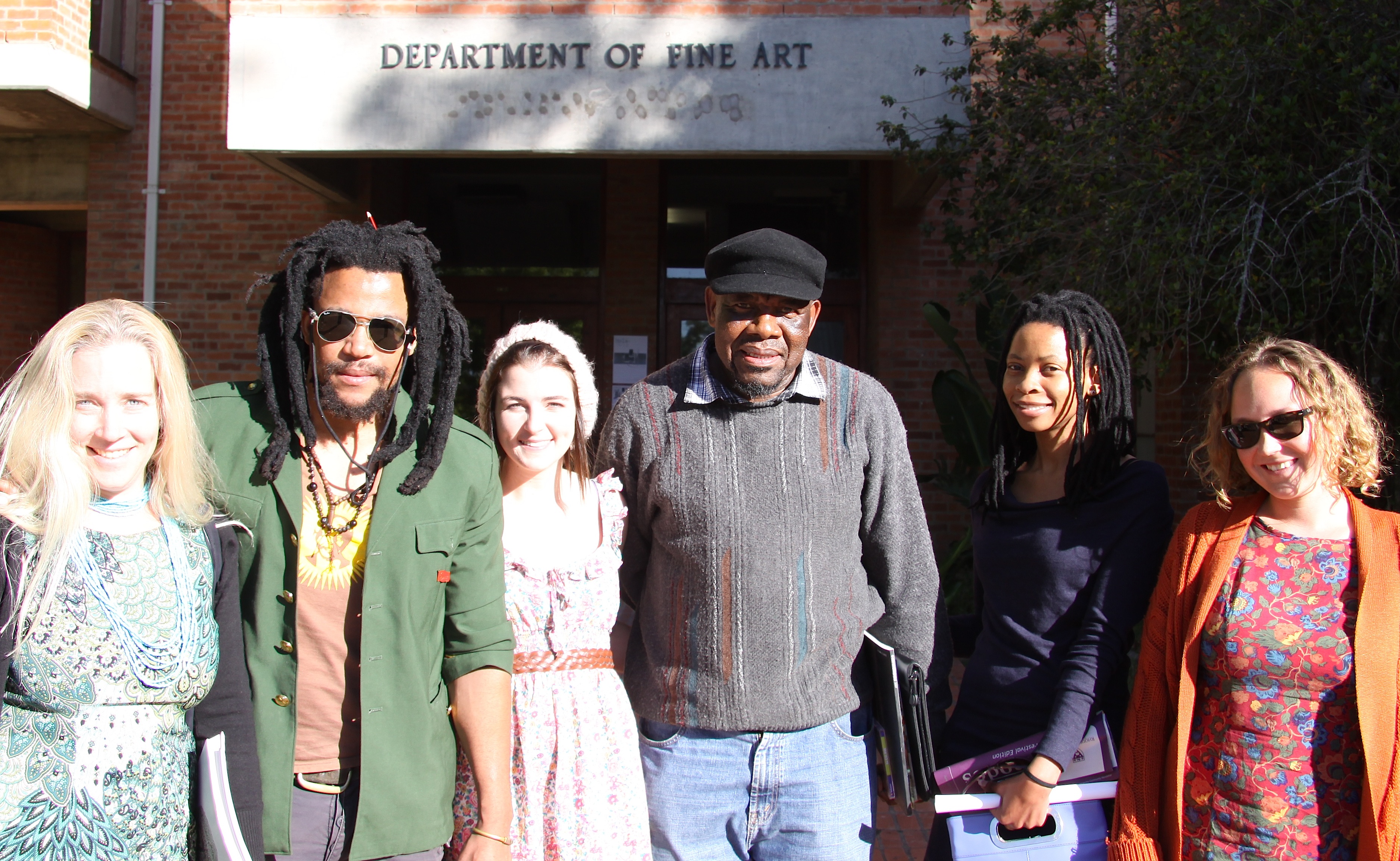
There is an urgent need to understand culture through the arts, as a critical addition to economic and political engagement.
This was the view expressed through a number of the Fine Art Department hosted a series of talks which took place on 30 September 2011, as part of the Rhodes University China Week.
The same view was articulated at the “China in Africa/Africa in China” colloquium by participants who stressed the need for the human aspects of China-Africa relations to be further researched.
In 2009 Professors Marius Vermaak, Ma Yue and Ruth Simbao travelled to China with Mandie van der Spuy of the Standard Bank Gallery to visit various art academies and institutions so that future partnerships can be established.
During the talks Simbao, who introduced the Fine Art Department’s collaboration with the Rhodes University Confucius Institute, also discussed the 2010 Shanghai Biennale. The Shanghai Biennale was themed Rehearsal, a theme that curator Gao Shiming suggests “brings down the closed theatre that is the arts community and brings art back to its public roots,” she said.
Sarat Maharaj, a speaker at the Shanghai Biennale symposium on India-China relations, stressed that the theme Rehearsal should not be interpreted as China, India and Africa simply rehearsing to be like the West, and he argued for revisionist modernities that go beyond a Western script.
Grahamstown artist, Vusi Khumalo and Cape Town artist Ayanda Mabulu talked about their artists’ residencies in China organized by the Chenshia Art Foundation of Chen Dabing, an art collector and businessman who lives in Cape Town.
Khumalo, who lived in exile in Zambia and Tanzania during Apartheid and who studied in Sweden, was one of the founders of the Dakawa Art and Craft Community Centre in Grahamstown.
He went to China in 2007 and 2009 where he collaborated with artists from the Hubei Institute of Fine Art, and was the first South African artist to be chosen for the Chenshia Art Foundation exchange.
Ayanda Mabulu who returned from China some months ago, exhibited his paintings at the Chenshia Museum in Wuhan, Hubei Province and produced an exhibition catalogue titled “Beautiful Imperfection” (Chenshia Museum, 2011). Mabulu is a resident artist at Greatmore Studios in Woodstock, Cape Town, and hails from King William’s Town.
In the foreword, Art Critic and Research Fellow at the China Art Research Institute, Tao Yongbai, writes that Mabulu’s paintings reveal the “humanity, glory and victory” of people “fighting against oppression and [the] apartheid system imposed…[on] the people of South Africa by the colonialist and racist regime”.
Poetically critiquing both South African and Chinese societies, Mabulu says that through his work he tries to see the other side of the moon. This is a pertinent metaphor for the vision that is needed for cultural understanding with regards to China-Africa relations.
Rhodes Fine Art fourth year students, Simone Heymans and Leora Jones presented their essays that won second and first prize respectively in the essay competition for Simbao’s seminar China and Africa: ‘Place’, Transnationalism and the Global South. Jennifer Coppinger, who was unable to attend the event, was also a second-prize winner
The competition was supported by the Rhodes University Confucius Institute.
Simone Heyman’s paper, “The Only Constant is Change: Pervading Cultural Anxiety in Ai Weiwei’s Work” provided a close reading of Ai’s 2010 installation of porcelain sunflower seeds at the Tate Modern Gallery.
Referring to the fact that Chairman Mao was viewed as the sun and his followers as the sunflowers, Heyman’s revealed how the artist engages with the relationship between the individual and the masses in this work. The installation at the Tate existed of almost 100 million porcelain seeds strewn across the gallery floor.
In her paper, “A Tender Iconography of Pain: Body and Site in Zhang Huan’s Early Works”, Leora Jones discussed two performance works by Zhang: Twelve Square Meters (1994) and To Raise the Water Level in a Fishpond (1997), the latter being a collaboration with over forty migrant workers in Beijing.
Referred to colloquiallyas a 'floating population' (liudong renkou) (Genocchio, Zhanghuan.com) due to the fact that they exist outside of the official government work unit structure, the workers, as Jones suggests, declare their marginality, yet enact their efficacy as they create a shift in nature when performing together.
Professor Marius Vermaak, the Director of the Confucius Institute, presented Heymans and Jones with certificates for the essay competition at the end of the event.
Photo by Gerald Machona
CAPTION
Ruth Simbao (left), Ayanda Mabulu (second from left), Simone Heymans (third from left), Vusi Khumalo (middle) and Leora Jones (right).
